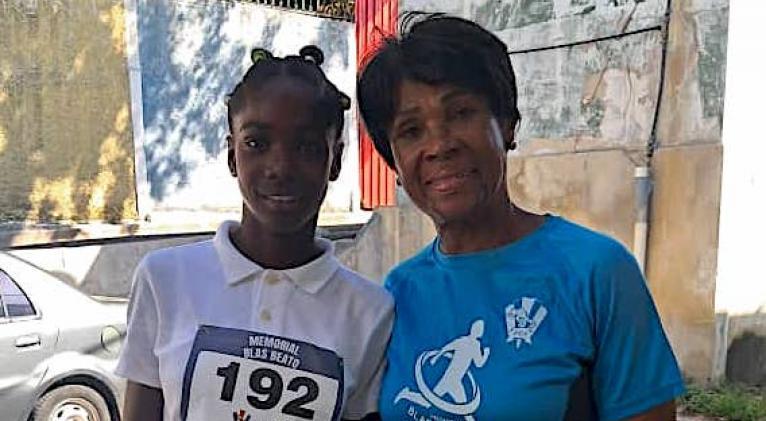When Ana Fidelia Quirot Becomes a Cuban Girl Again
especiales

It is unforgivable that I didn’t catch her name that Saturday morning — one of those things that happen when emotions take over the craft. “How do you feel?” was the first question I managed to ask after watching her come off the track, still breathless, but with enough energy to nearly fly over the worn-out stands of Pedro Marrero Stadium to meet a legend. “I like it, so I don’t feel bad, I feel really good running,” she replied.
Of course, the conversation happened after snapping a photo of her with the “Caribbean Storm” — a woman she could only know through the admiration of her elders or old footage from the glorious days when the young athlete hadn’t even been born, and Ana Fidelia Quirot brought joy to Cuba with her performances on the world’s tracks.
But the world champion in Gothenburg 1995 and Athens 1997, and Olympic medalist in Barcelona ’92 and Atlanta ’96, is above all a woman filled with gratitude. With the same simplicity she showed when sewing face masks during the COVID-19 pandemic, she has been organizing the Blas Beato Memorial for the past 13 years, named in honor of one of her most beloved coaches.
“The main motivation is to scout talent in the sprint events I used to compete in — the 400 and 800 meters — to find boys and girls for Cuba’s sports initiation schools in these distances where we once had world-class runners,” the famed Santiago native explained with genuine humility.
“You know Cuban sprinting has hit a rough patch,” she added. So sitting back and doing nothing isn’t an option for a daughter of Fidel. “We want to find kids with the right conditions, with the right potential for these distances, and see if we can climb out of this slump we’ve been in for several years, at least to keep fighting for strong results in Central and Latin America. We’ve fallen behind a bit, and that’s why we’re holding this event.”
Some of her fellow athletes, she noted, are also leading similar initiatives — among them Cuba’s world record high jumper Javier Sotomayor, and the country’s first Olympic champion, María Caridad Colón, in javelin.
The young athlete is in fifth grade, and we’ll likely be hearing more about her before long — in school competitions, then junior ones, and who knows how far she might go. For now, she’s won a medal in the relay and is thrilled. Her little sister, a year younger, also trains on the track, and their aunts, both physical education teachers, support them every step of the way. But Ana Fidelia’s presence has an impact that’s hard for her to put into words: “It makes me a little shy for someone like her to watch me run, but mostly it gives me motivation, strength...”
Ana Fidelia understands that, and she cherishes these moments with the same ease she carries herself with: “For these kids, it’s encouragement, and for me, it’s an honor that they see me as a role model — in sports and in life. You feel as if you’re still competing when a child asks for a picture. For them, it’s an inspiration, an example, a boost — because they, too, dream of representing their province, their country in a competition someday.”
And of course, that fills her — and us — with hope. So even if a month or two has gone by, it’s still worth telling the story of the day Ana Fidelia Quirot stepped onto the track with children and, through them, became the future once again.
Translated by Sergio A. Paneque Díaz / CubaSí Translation Staff














Add new comment